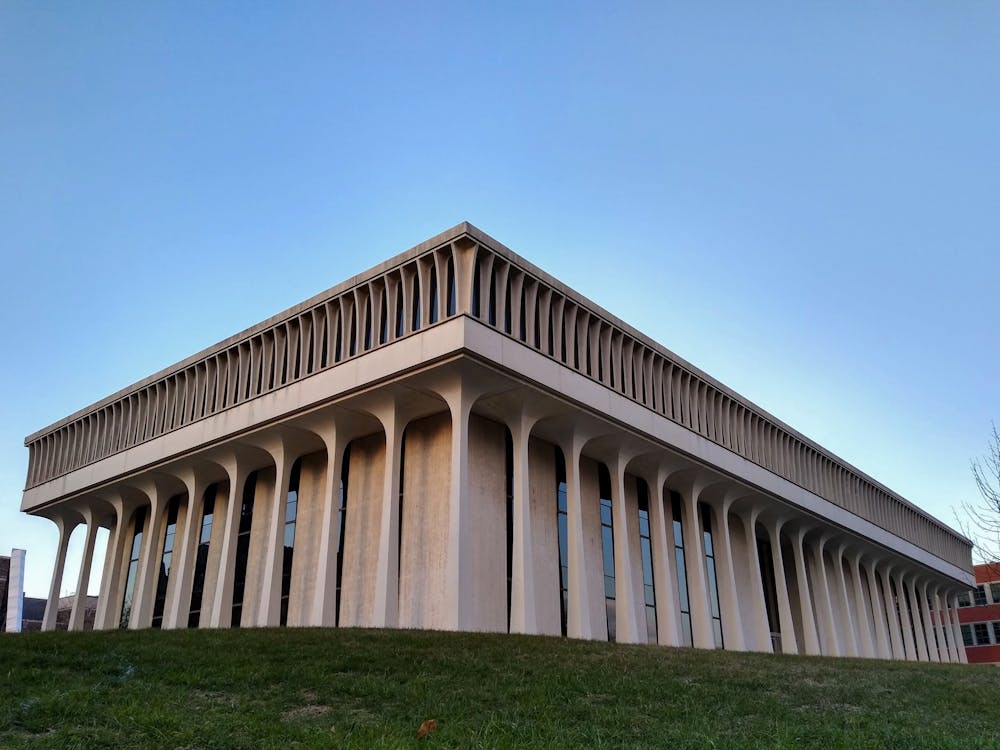As an American, many of my Princeton colleagues and I have been inundated with the notion that democracy is synonymous with freedom. Democracy is, however, much more murky and multifaceted than this, as exhibited by the recent military coup in Myanmar.
Both President Biden and hundreds of politically engaged young people have been outraged by what they consider a complete violation of a representative government on behalf of Myanmar citizens. However, adoption of a democratic title does not imply the fulfillment of democratic principles. Although there is, of course, a gradient of undemocratic forms of government, it is vital that we, as engaged individuals, apply a critical lens to every so-called democracy, rather than cherry-picking the ones that most obviously (and easily) fail to exhibit egalitarianism.
On Feb. 1, Myanmar’s military, known as the Tatmadaw, staged a coup against elected leader Aung San Suu Kyi. It was just in 2015 when Myanmar hosted its first openly contested election, which Suu Kyi won in a landslide. Suu Kyi again won on Nov. 8, 2020, but claims of voter fraud and a resurgence in military strength have resulted in her overthrow and a year-long military-mandated state of emergency.
Mass protests and strikes followed the coup, demanding an end to military rule and the return of power to National League for Democracy party members. Suu Kyi rose to fame during her campaigns in the 1990s, calling for free elections and the establishment of a democratic order, which cost her 15 years of house arrest by the Tatmadaw. In 1991, Suu Kyi won a Nobel Peace Prize for her commitment to freedom, and her election as state counselor (the de facto president) led the United States to lift sanctions. However, Biden has re-imposed these sanctions as a method to threaten the Tatmadaw. On Feb. 10, he issued an executive order preventing Myanmar’s generals from accessing $1 billion in assets as incentive to restore power to Suu Kyi.
It is striking, however, how quickly we seem to have forgotten Suu Kyi’s legitimization of the institutionalized ethnic cleansing of Myanmar’s Rohingya Muslims. Myanmar is a majority Buddhist state; when, in 2014, the Rohingyas began migrating to Myanmar from Bangladesh, Myanmar denied them citizenship and excluded them from the government census that year, essentially discounting them as human beings. Outraged, Rohingya militants launched deadly attacks on over 30 police posts in Rakhine, located on the western coast of Myanmar, in 2017. By the end of that year, over 740,000 Muslims had fled to Cox’s Bazaar, Bangladesh. At least 6,700 individuals were killed in the month after the violence broke out, over 700 of whom were children. Hundreds of Rohingya villages were burned down in Rakhine. Myanmar’s armed forces engaged in widespread gang rape and sexual slavery.
The coup d'etat arranged by the Tatmadaw is a total breach of a nation’s obligation to respect and protect the rights of its citizens. I believe that Suu Kyi won the 2020 election in a landslide as she and the NLD claimed she did. However, just because a democratic electoral process is at stake for the majority of Myanmar’s population, the United States cannot forget that the hands of democracy have never even been extended to a significant minority in the country. It is not only detrimental to the Rohingya population but to the concept of democracy to associate it with Suu Kyi’s government. A democracy with exceptions — one only available for those who ascribe to Buddhism and share Burmese ancestry — is not a democracy at all.
The United States has yet to officially recognize the attack on Rohingya Muslims as a genocide. Although there is little hope of Biden making this recognition a priority, given that we are living in a time of domestic clean-up, we as Princetonians must do our part in integrating the genocide conversation into each of our discussions regarding Myanmar. Relying on surface-level adherence to a democratic brand has thus far served as a copout for US intervention in Myanmar.
To address this on a local level, one solution could be creating a Princeton committee dedicated to Rohingyan activism. There is a Muslim advocacy group, Muslim Advocates for Social Justice and Individual Dignity (MASJID), but in order to prevent the disappearance of Rohingya advocacy from our campus dialogue, efforts must be focused on Myanmar, either in the form of a MASJID extension or an offshoot from the existing club.

It is easy to feel powerless in the face of global crises, and in many ways, there is little students can effectively do to mitigate them. However, organizing fundraisers and establishing relationships with NGOs like Partners Relief & Development and Rise for Rohingya are solid places to start. Now that our seconds-long American attention-span threatens our response to the Myanmar coup, it is as good a time as any to expand our advocacy organizations to encompass Southeast Asia and expand our discussions of Myanmar to address the injustices that existed in the years before the coup.
We must remember that our commitment to democracy on campus extends beyond the United States. To consider ourselves true proponents of free speech and movement, we must focus our campaigns on egalitarianism, both domestically and abroad.
The Rohingya conversation serves as a reminder to approach democracies holistically and with a perpetually critical eye. Democracy is an imperfect animal, but this provides incentive to improve, rather than encouragement to settle for oppression concealed among the promise of free elections.
Human rights do not inherently follow the establishment of democracy. We must resist the comfort offered by superficial nomenclature and work to address discrepancies between government theory and practice, both at home and globally.

Andi Grene is a first-year from Manhattan. She can be reached at agrene@princeton.edu.








